If you have recently lost your job, the initial shock and stress can be overwhelming. It’s hard to know where to start or what to do next. Here are several tips to help you get back on your feet after a layoff.
What Does It Mean to Be Laid Off?
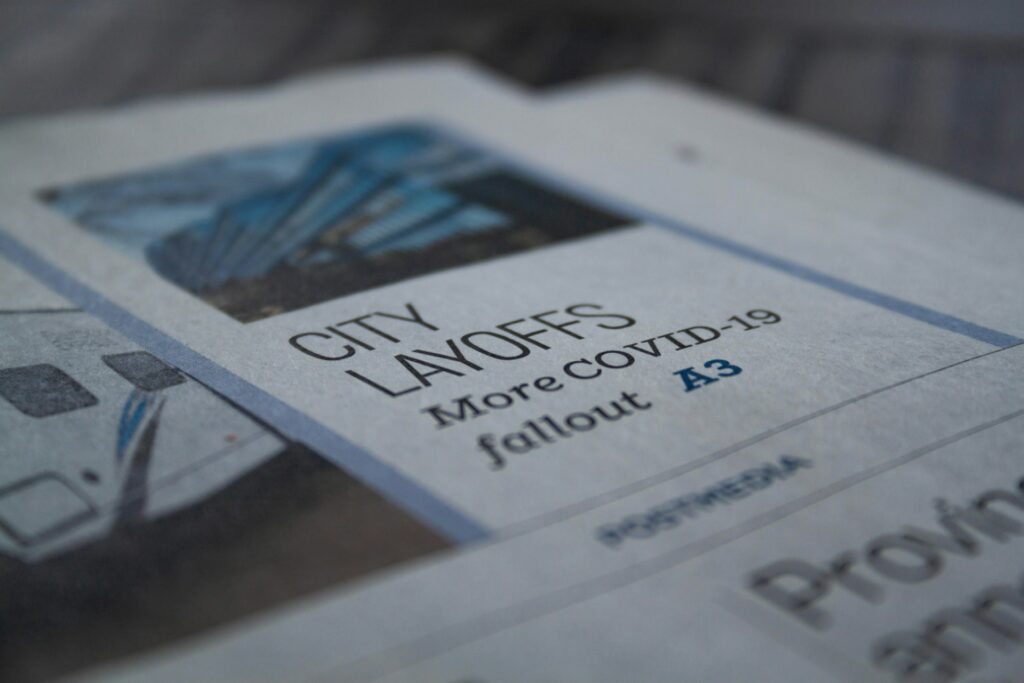
When a person is laid off, it means they are no longer employed. They may have been with the company for years, but due to restructuring, many employees are being let go. Getting laid off is not the same as getting fired – it’s usually a result of the company downsizing or going through a difficult financial period. A furlough is an extended leave of absence from a job – this usually happens when there’s a shortage of work. Employees on furlough still have their jobs, but they’re not receiving any pay during this time.
Is a layoff the same as a termination?
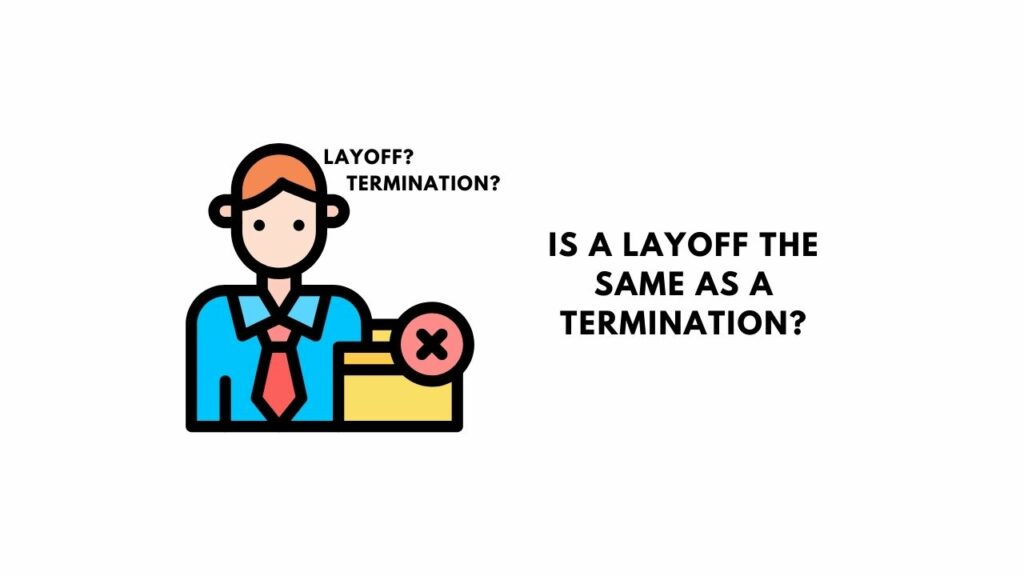
A layoff is usually a temporary measure taken by an employer to reduce costs during tough economic times. Employees who are laid off are typically given severance pay and are able to collect unemployment benefits. A termination, on the other hand, is a permanent measure taken by an employer to remove an employee from the company. Terminated employees usually do not receive severance pay and are not eligible for unemployment benefits.
Getting Laid Off vs. Fired
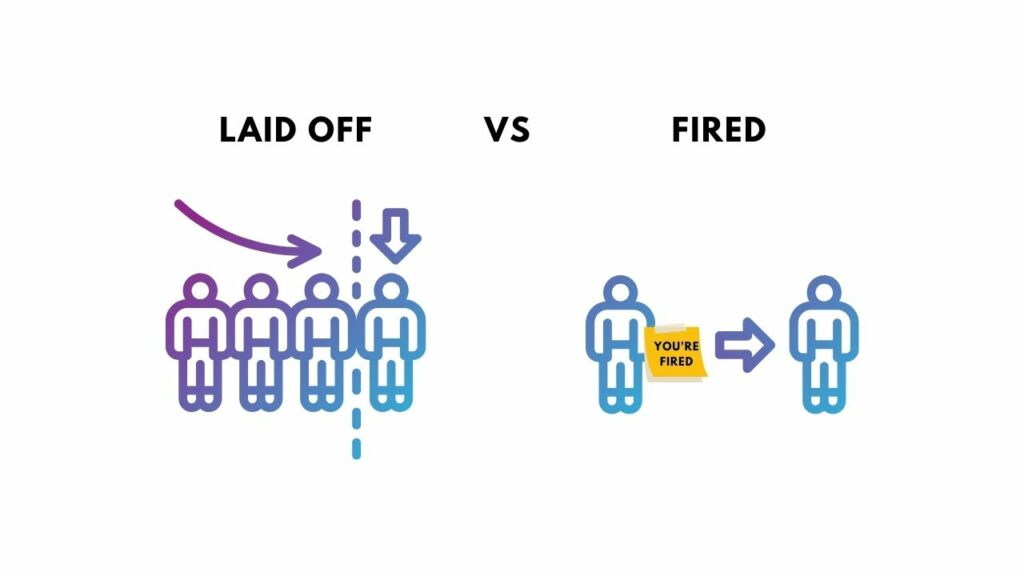
There is a big difference between getting laid off and getting fired. Getting laid off is usually a result of downsizing or budget cuts, and it’s not necessarily a reflection of your work performance. Getting fired is generally a result of poor performance or misconduct. While getting laid off can be hard to take, it’s not as bad as getting fired because getting fired is a result of your own actions.
Getting Laid Off vs. Being Furloughed
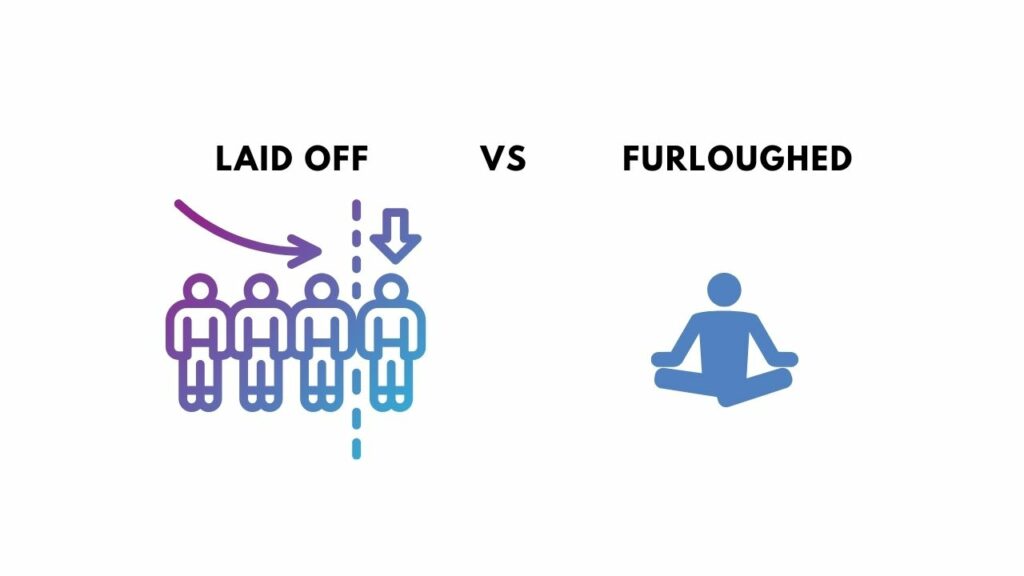
There’s a big difference between getting laid off from your job and being furloughed. Getting laid off means you no longer have a job and are looking for new employment. Being furloughed is an extended leave of absence from your job, usually due to budget cuts or other reasons beyond your control. It’s important to know the difference so you can plan accordingly.
See Related: Best Trade Jobs
What to Do After Being Laid Off
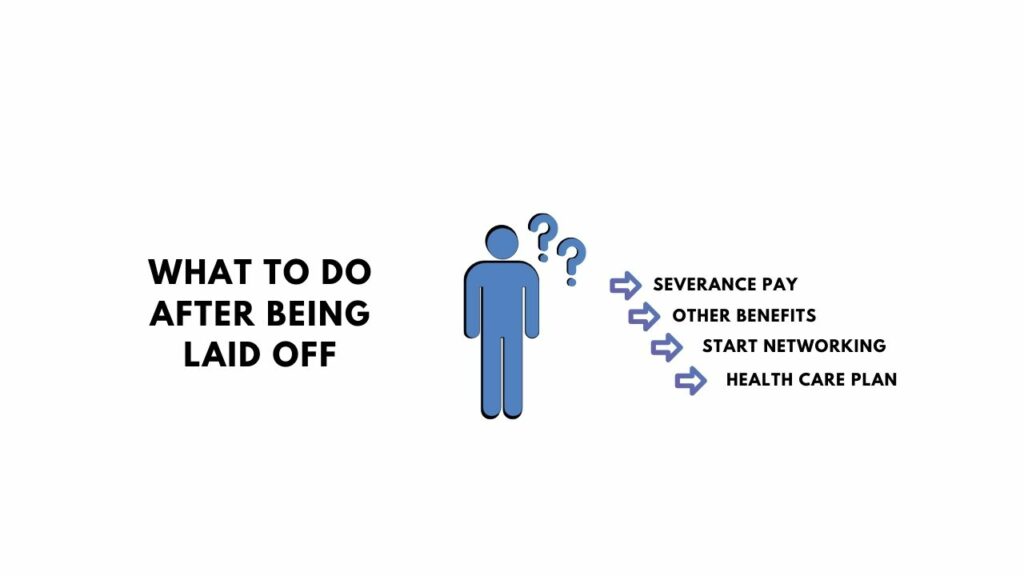
Being laid off can be a really tough thing to go through. You suddenly lose your job and it can feel like your whole world is crumbling. But there are some things you can do to make the situation better.
First, you should get all the information from your former employer. This includes your severance pay and any other benefits you might be entitled to. It’s important to know what you’re entitled to so that you can plan accordingly.
Next, give yourself some time to process what has happened. It’s okay to take a few days (or even a week) to mourn the loss of your job. But after that, it’s time to start looking for new opportunities.
One of the best things you can do after being laid off is to start networking. Talk to people in your field and let them know you’re looking for a new job. You never know when a good opportunity will come up.
Finally, don’t forget about your health care plan. If you’re covered by COBRA, you can continue your coverage for 18 months after being laid off. If not, look into other options for health care coverage.
For more information on what to do after being laid off
1. Don’t rush into your job search

Don’t rush into your job search. Take your time to get a good feel for what you want in a job. Hunting for a job can be a full-time job, so treat it like one.
2. File for Unemployment

Unemployment is when you are out of work and looking for a job. You can file for unemployment if you have been laid off, fired, or if you quit your job. Unemployment benefits give you money to help pay for things while you are looking for a new job. Severance is money that your company gives you when you are laid off. The Department of Labor is the government agency that helps people with unemployment.
3. Don’t accept the first job offer you get

If you’re job hunting, it’s important to keep in mind that you shouldn’t accept the first job offer you get. It’s always a good idea to shop around and compare offers before making a decision. Once you’ve found the right job for you, then you can go ahead and accept the offer.
4. Review Your 401(k) and/or Pension Plans
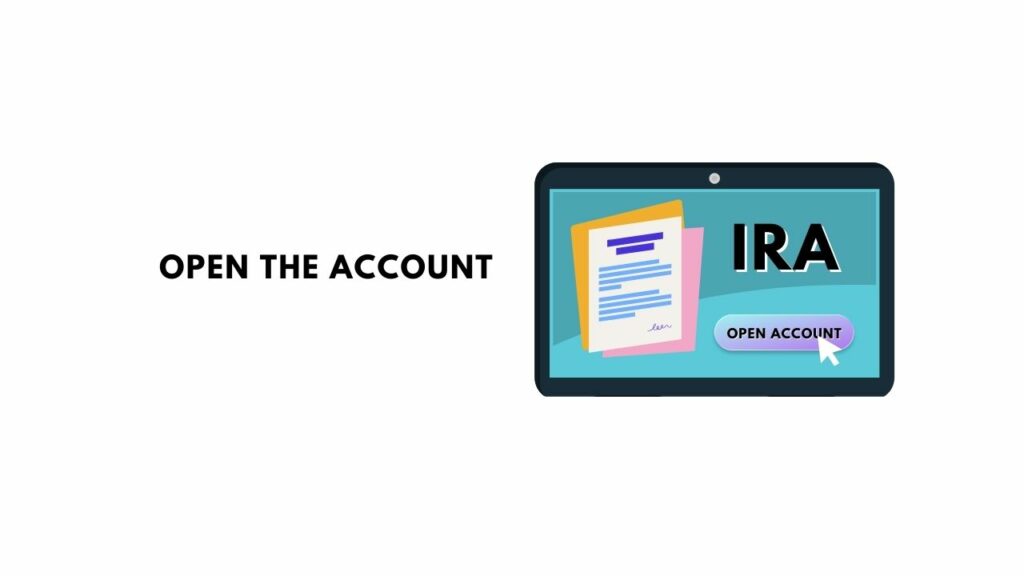
If you have a 401(k) from a former employer, you have the right to get the money in that account. You can do this by opening a rollover IRA (Individual Retirement Account).
5. Investigate a Severance Package
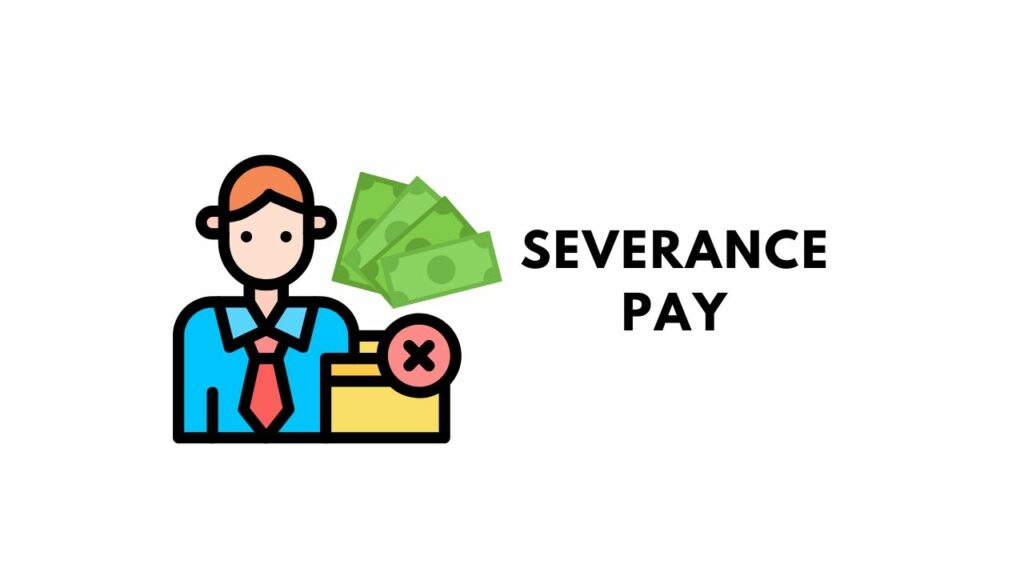
If you are laid off, you may be entitled to a severance package. A severance package is typically offered by an employer to an employee who is being let go, and it can include things like pay in lieu of notice, a continuation of health benefits, and outplacement services. It is always a good idea to investigate what kind of severance package you may be entitled to before accepting a layoff.
6. Register for Unemployment

Registering for unemployment is a good idea if you find yourself out of work. Unemployment benefits can help you cover your living expenses while you look for a new job. How long it will take for your benefits to start depends on where you live, but typically it is within a few weeks. You will need to contact your state’s department of labor to begin the process.
7. Create some new routines.

If you’ve been laid off, it’s a good time to create some new routines. Starting something new can be a great way to get out of a rut. Try to find things that you’re passionate about and make time for them every day. This can be anything from starting a new hobby to taking a different route to work. Creating new routines can help you feel more positive and motivated.
8. Tighten up the budget.

In order to save money, you may need to tighten your budget. This may include cutting back on spending and making changes to your lifestyle. In some cases, it may also mean layoffs or being laid off from your job. You may want to find different online jobs right away to be able to earn extra income.
9. Connect with friends and family.

If you find yourself with some extra time on your hands, why not use it to connect with friends and family? Whether you reach out by phone, text, social media, or in person, taking the time to connect with others can help improve your mood and mental health. If you’re struggling to enjoy yourself, try reaching out to someone who makes you laugh.
Or, if you’ve been laid off or are facing a layoff, connect with others who may be in the same situation. Sharing your experiences and feelings can help you feel less alone and better equipped to handle whatever comes your way.